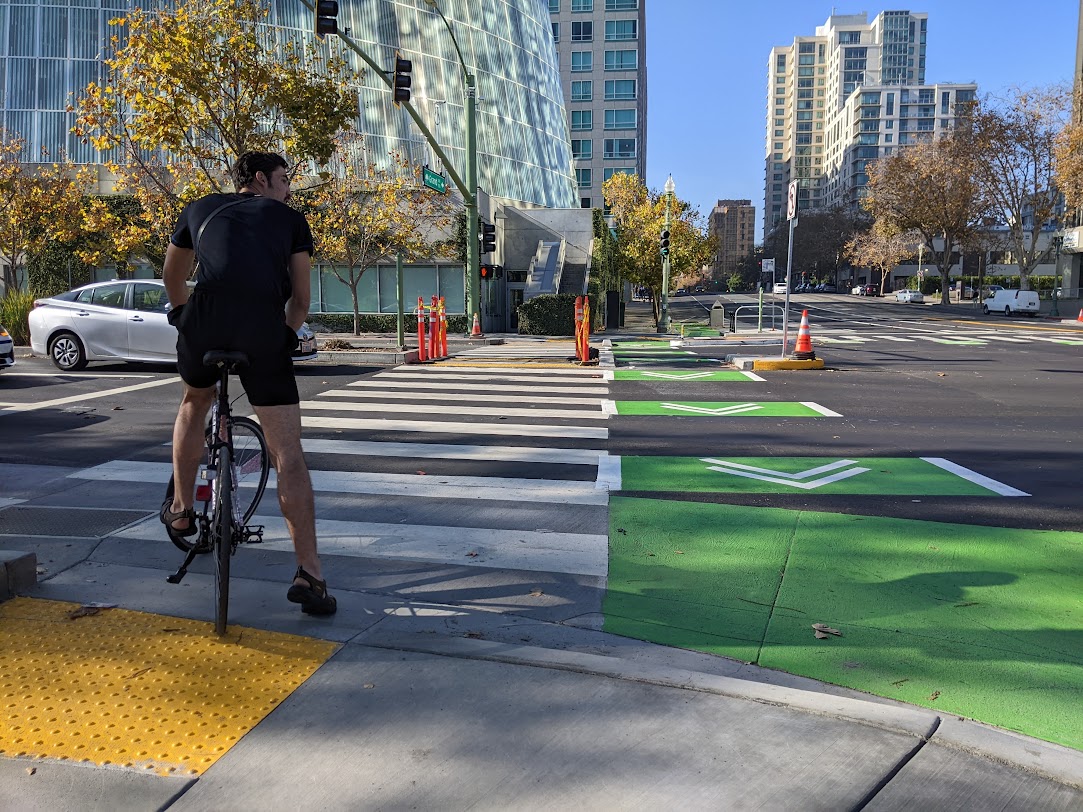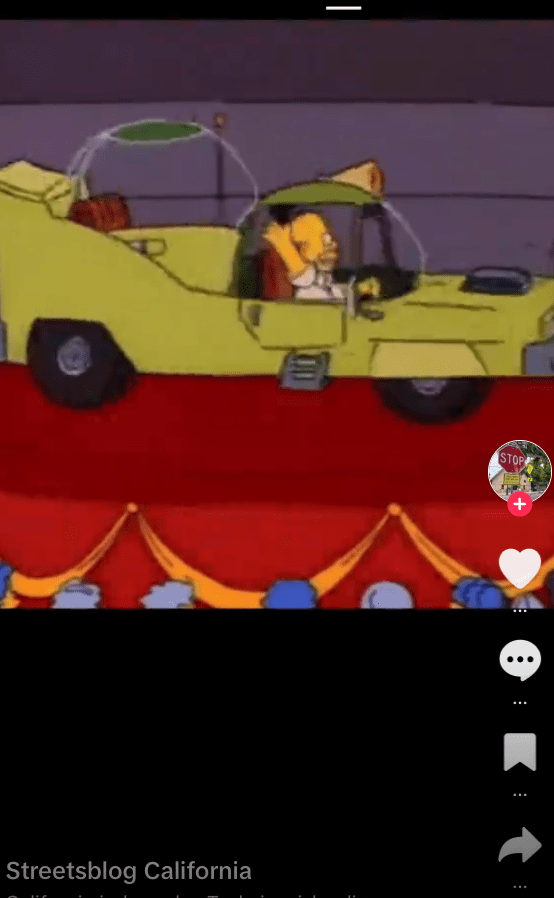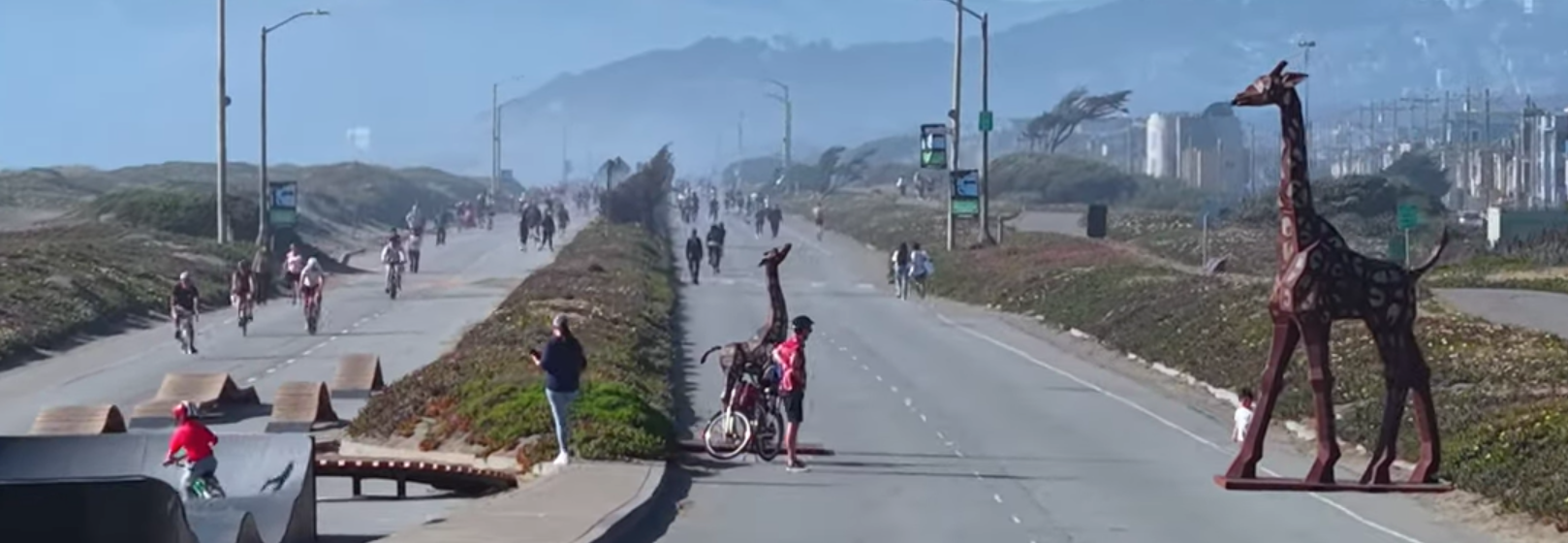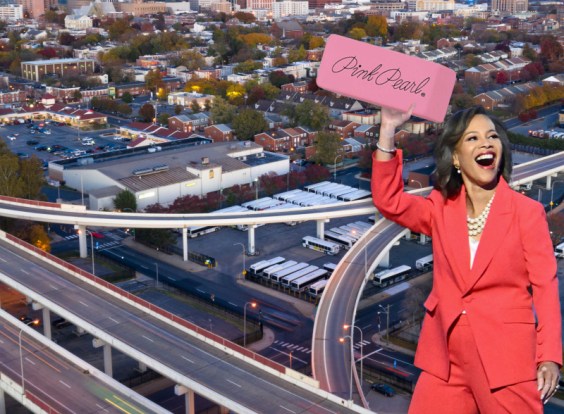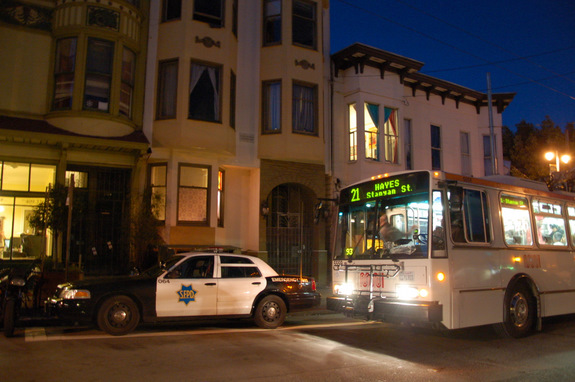
San Francisco's next mayor will wield immense influence over whether the city takes the necessary steps to reform its transit system and get Muni up to speed.
Which of the top candidates will be bold enough to support a truly transit-first city? Who actually rides Muni? Will any of them support extending parking meter hours?
If you haven't cast your early vote yet, check out two recent candidate surveys from The San Francisco Transit Riders Union. Seven of the top candidates replied with their positions on some key transit issues.
One question asks: "As mayor of San Francisco, what three things will you do during your first year to remedy your neighbors’ concerns about MUNI?"
See excerpts from the candidates' responses after the break.
Also, don't miss the SF Public Press' series of candidate video interviews as they roll out.
It is crucial that we start holding MUNI accountable to its promise of 85% reliability. As Mayor, I will work with the MTA to implement a coherent, equitable and cost effective plan to increase the speed, reliability, and ridership of MUNI services. Speed, reliability, and ridership can all be quickly improved by increasing the placement of “transit only” lanes in congested areas of our city during peak and “rush” hours.
The concerns of my Upper Market and Noe Valley neighbors about Muni are mostly ones that need to be dealt with through traffic and transportation engineering decisions. As, I am not an expert on these matters I would need to rely on the advice of people who are — but in favor of our Transit First principles.
Citywide, I am interested in pursuing the all-door boarding. I understand that this is a campaign that SFTRU is working on now. The other side of the coin is expanding the number of Proof-Of-Payment officers on the system which would give people jobs and ensure that Muni is collecting the fares that is should be collecting.I also understand that Geary BRT is in the EIR phase right now — but that it is years behind schedule. I am concerned about this, as expanding service along the Geary corridor is vital to the people of the Richmond District. They are one of the few neighborhoods without light rail, and something needs to be done about that. I would look into this and find out what we can do to get this project up to speed.
Muni is one of the oldest public transportation networks in the United States; the entire system is in need of a major overhaul. The TEP has the potential of saving the City millions of dollars and improving service. However, budget shortfalls have kept the San Francisco Municipal Transportation Agency (SFMTA) from implementing the TEP recommendations.
As Mayor, I will make Muni a daily issue. I’m not going to make any false promises the way Willie Brown did about fixing Muni in 100 days. But I will pursue a local vehicle license fee or other ongoing source of revenue to fund infrastructure improvements. I will put a stop to unnecessary work orders, reduce overtime, and reverse the practice of cutting service and raising fares in lieu of implementing cost-saving alternatives. I will make Muni free for kids to get to school, to after-school programs, dance classes, jobs, or sports.
There is much that can be done to improve upon the current state of MUNI, and I have a plan with specific solutions that will create the efficiency and ease that our city deserves when it comes to public transportation.
1. Institute Accountability
In November 2010, San Franciscans overwhelmingly passed Proposition G, a ballot measure which mandated that the Transportation Workers Union must participate in collective bargaining for their wages and benefits rather than having them set by the City Charter. Before Prop G, because workers did not have to negotiate regarding salaries or working conditions, it was easy for Muni to have an organizational culture lacking accountability...
First, I will bring MUNI out the dark ages and implement industry standard technology improvements to improve efficiency. Muni is the last major city transit operator in the country that has not implemented two key technologies that will improve on-time performance: a computer-aided dispatch system, and on-board technology that actively notifies the driver if they are running according to schedule. Both technologies have become standard equipment in public transportation fleets across the country over the last 20 years, yet Muni is literally the last agency in America that still dispatches with paper and pencils. These operational changes and technological upgrades even have funding already allocated from Proposition K dollars, yet Muni leadership still refuses to make them a priority and move forward. These changes will greatly improve efficiency without adding to MUNI’s deficit...
While San Francisco has had a plan to improve Muni reliability and travel times – the Transit Effectiveness Project (TEP) — we need to stop talking and start acting. We have a real opportunity to improving speed, reliability, and capacity on the Muni rapid network. Implementing the recommendations in the TEP would help achieve 10 to 30 percent time travel savings, dramatically cut operating costs, and increase reliability on each line.
Specifically, in my first year I would:
- Fight for budget allocations particularly to allow for bus prioritization at traffic signals, implementation of all door boarding, bus stop consolidation and the development of long overdue Bus Rapid Transit on Geary and Van Ness.
- Accelerate the implementation of pilot projects on Market Street downtown – including further diversions of private car traffic – to improve transit on one of San Francisco’s busiest Muni corridors.
- Implement a Transportation CompStat program, similar to how police track and respond to crime hotspots, allowing the MTA and Muni riders to measure, publicize, and act on key transportation metrics.
1. I would allow all-door boarding. This is already a de-facto practice and buses are already equipped with Clipper Card readers at back doors. Allowing all-door boarding will help speed up Muni. Studies shows 25% of Muni delays are due to the boarding process. Currently, high traffic buses, such as the 1-California, 38-Geary, 14-Mission and 30-Stockton, spend about 20 percent of their operating time boarding at bus stops. If we could decrease boarding times and increase the speed of an average Muni bus from the current 8 mph to just 10 mph, SFMTA would save $40 million a year.
2. As mentioned above, I would decrease the use of work orders to deplete Muni’s budget by other city agencies and departments. Voters approved Muni funds should stay with Muni...
Be sure to check out the rest of the questionnaire.
Are there any other transit issues you would like to see addressed by the mayoral candidates? Let us know in the comments.
